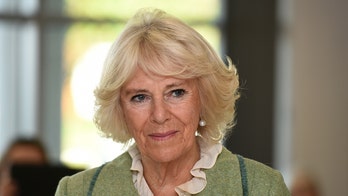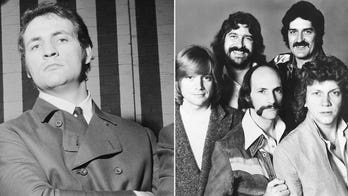The Motion Picture Association of America (MPAA) has slapped the new documentary "Bully" with an R rating, effectively making it difficult for tweens and teens – the ones who would benefit most from seeing a movie about the devastating effects of bullying – to see the award-winning film.
The Weinstein Company, the documentary's distributors, appealed to lower the rating to PG-13, but was rejected by the MPAA.
Now some of those impacted by bullying are fighting back.
Katy Butler, a Michigan high school student who endured brutal bullying in middle school when she came out as a lesbian, is leading the charge with an online petition on Change.org to strike the “R” rating.
“I can’t believe the MPAA is blocking American teenagers from seeing a movie that could literally save thousands of lives. The MPAA needs to give ‘Bully’ a PG-13 so the students being bullied, and bullies themselves, can see this film and schools can show it as well,” Butler told FOX411’s Pop Tarts column, adding that bullying in schools these days remains at an all-time high among youth.
“It’s awful. Everyone either gets bullied or is a bully,” she said. “We need to change this, and showing this film is one way of doing that.”
Last year Butler launched another petition on Change.org encouraging the Michigan state legislature to stop the state’s “License to Bully” bill which was reported to have given religious and moral exemptions from bullying. Over 50,000 supporters signed the petition, and the legislature passed a new bill without the controversial exemptions. Butler’s initiative to get a PG-13 rating for “Bully” has already attracted more than 150,000 signatures, but the MPAA argues that an R does not prevent teens from seeing the movie, but instead enables parents to make informed decisions
“Bullying is a serious issue and is a subject that parents should discuss with their children. The MPAA agrees with the Weinstein Company that ‘Bully’ can serve as a vehicle for such important discussions. Unfortunately, there is a misconception about the R rating of this film limiting the audience to adults,” Joan Graves, head of the Classification and Ratings Administration on the issue. “This is not true. The voluntary ratings system enables parents to make an informed decision about what content they allow their children to see in movies.”
“Bully” got its R rating based on four-letter words, but critics of the R label have pointed to the 1971 documentary “Sunday Morning,” which they say contained more inappropriate language than the MPAA typically allows, but was given a pass due to its documentary nature. Harvey Weinstein, co-chair of The Weinstein Company, last week threatened to leave the MPAA over the decision, calling it an “injustice” to children who have been victimized by bullies.
A rep from the MPAA said the distributor could submit a different version of the motion picture – either censoring or ‘bleeping’ the profanity – to the Classification and Ratings Administration re-rating in accordance with the Rules. But the Weinstein Company is standing firm and does not intend to submit an amended version, the rep said.
Directed by Emmy-award winning filmmaker Lee Hirsch, “Bully” follows five kids and their families over the course of a school year. Stories include two families who have lost children to suicide after they were bullied, and a mother struggling to come to terms with the incarceration of her 14-year-old daughter for bringing a gun onto her school bus. Slated for theatrical release on March 30, director Hirsch hopes “Bully” will shed light on bullying in American schools and act as a catalyst for change.
“Suicide is the ultimate consequence of bullying, so yes, we did know early on that we wanted to tell the stories of parents whose children had committed suicide due to bullying,” Hirsch said in the film's production notes. “We wanted people to be aware of how high the stakes are and to dispel the notion that bullying is just ‘kids being kids.’”






